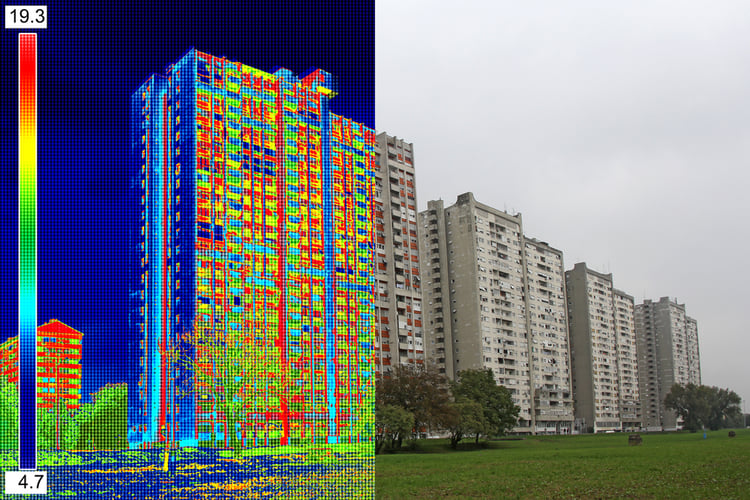5 Benefits of a Professional Energy Audit

Electricity and natural gas prices have increased sharply since 2021, and the resulting hike in energy bills can be significant for building owners. A professional energy audit is the best starting point when you want to save on electricity and gas, since you get an assessment of all building systems that use these resources. Here we will discuss 5 ways an energy audit can benefit your building.
Get a professional energy audit, and cut your electricity and natural gas bills.
1) Know Your Energy Consumption Accurately

Utility bills only tell how much electricity and gas have been used during a billing period, and how much you must pay for them. However, utility bills don’t tell you how each building system uses energy. If you only know the total consumption in a building, you cannot analyze the effectiveness of specific energy conservation measures. Each property has a unique consumption profile, and the same upgrade can have very different results across buildings.
An energy audit can reveal how your consumption is split among different types of equipment, and also how your consumption varies throughout the day. Based on this information, energy consultants can design effective measures to reduce your utility bills. Space heating and air conditioning are typically the largest loads in commercial buildings, but accurate decisions regarding these systems are only possible after an energy audit.
2) Improve the ROI of Building Upgrades
A major building renovation is an excellent opportunity to improve energy efficiency, since you can upgrade MEP installations without causing disruption for occupants. If you get an energy audit before the renovation project, you can identify the building upgrades that will achieve the highest savings. You can also know the expected cost of each energy conservation measure, and how the total project budget is affected by your choices.
Energy efficiency measures often qualify for grants and other financial incentives, which are not available for building upgrades that only focus on appearance. You may also qualify for low-interest loans, which can be paid off with the energy savings achieved. Energy audits can help you make better investment decisions, increasing the ROI of your building portfolio.

3) Reduce Your Greenhouse Gas Emissions

The emissions produced by a building are directly related to its energy consumption, and also the combination of sources used. Since an energy audit provides a detailed breakdown of your building’s consumption, you can determine its carbon footprint based on the emissions produced by each source.
The results of an energy audit can also be used to analyze the impact of switching between different energy sources. For example, you can determine the avoided emissions when upgrading from an oil-fired boiler to a newer gas-fired unit, or when upgrading to fully electric heat pumps.
An accurate building emissions calculation is especially helpful for owners subject to climate mandates, such as Local Law 97 of 2019 in NYC. This law establishes emission limits for buildings based on their occupancy classification and floor area, and there is a penalty of $268 per metric ton of CO2-eq over the limit.
4) Identify and Fix Equipment Issues
Energy consultants generally have a professional background in mechanical or electrical engineering. This means they can identify many types of issues that affect building systems, not only those related with energy consumption. An energy audit will often reveal damaged components and other malfunctions, giving you an opportunity to conduct repairs before there is a major breakdown.
Building owners often save on maintenance and repairs thanks to energy audits, since they discover issues that would have been more expensive to fix later. There are also many cases where malfunctions and energy waste are related; for example, an electric motor that suffers from excessive friction and vibration is less efficient, since more energy is dissipated as heat.
5) Meet Local Law 87 of 2009 (NYC Buildings)
If you own a building in NYC, Local Law 87 of 2009 makes energy audits mandatory at 10-year intervals. In this case, regular energy audits not only offer the benefits described above; they also keep your building compliant. This law applies for all buildings larger than 50,000 sq.ft., and you must meet the requirements of an ASHRAE Level 2 energy audit (or better). Buildings covered by LL87 of 2009 must also be subject to retro-commissioning, ensuring that all systems operate as designed.

Michael Tobias
Michael Tobias, the Founding Principal of NY Engineers, currently leads a team of 50+ MEP/FP engineers and has led over 1,000 projects in the US
Join 15,000+ Fellow Architects and Contractors
Get expert engineering tips straight to your inbox. Subscribe to the NY Engineers Blog below.



